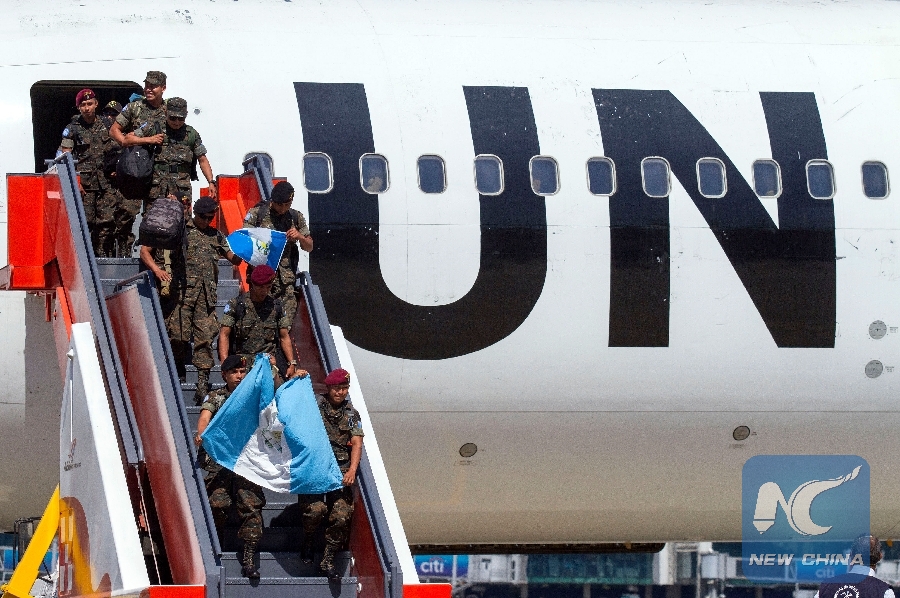
File Photo: Guatemala Army soldiers get off a United Nations (UN) plane, at Guatemalan Air Force facilities, in Guatemala City, capital of Guatemala, on March 11, 2015. (Xinhua/Luis Echeverria)
UNITED NATIONS, Jan. 7 (Xinhua) -- The United Nations (UN) on Monday rejected Guatemala's decision to terminate a treaty that established the commission currently probing its corruption, while the Central American country said the foreign-led body violated its sovereignty.
In a letter on Monday, Guatemalan Foreign Minister Sandra Erica Jovel Polanco informed UN Secretary-General Antonio Guterres that the mandate of the International Commission Against Impunity in Guatemala (CICIG) would end in 24 hours.
In response, UN Spokesperson Stephane Dujarric said in a statement that Guterres strongly rejects the content of the letter.
The spokesperson said until the mandate of the commission ends on Sept. 3, "we expect the government of Guatemala to entirely fulfill its legal obligations under the agreement."
In August, Guatemala refused to renew CICIG's mandate, setting a deadline of Sept. 3 to wind down its operations and leave the country.
CICIG, set up in December 2006 under the UN-Guatemala agreement, is an international body designed to help Guatemalan authorities investigate sensitive and difficult cases.
It has lately opened up probes into Guatemalan President Jimmy Morales's campaign financing and his brother's and son's alleged tax fraud.
On Saturday, a CICIG member was detained at an airport for almost a day but was finally allowed into the country by a court order.
Earlier on, Guatemala revoked visas and immunity for 11 CICIG members in December, and barred its head, Colombian prosecutor Ivan Velasquez, from entering the country in August.
In Monday's statement, Dujarric said Guterres expects Guatemala "to abide by its international undertakings to ensure the protection of the CICIG personnel."
Guatemala's constitutional court also has ruled the CICIG members should be allowed into the country to go about their work.
After meeting with the UN chief, the Guatemalan foreign minister told reporters the constitutional court's rulings "seem to try to dictate foreign policy of the state of Guatemala that is preserved for the president through the ministry of foreign affairs."
She also reaffirmed all the cases opened up by CICIG, including the ones on electoral corruption, will run their course, but that the commission has to hand over its powers and prerogatives to the relevant bodies and authorities of Guatemala.

